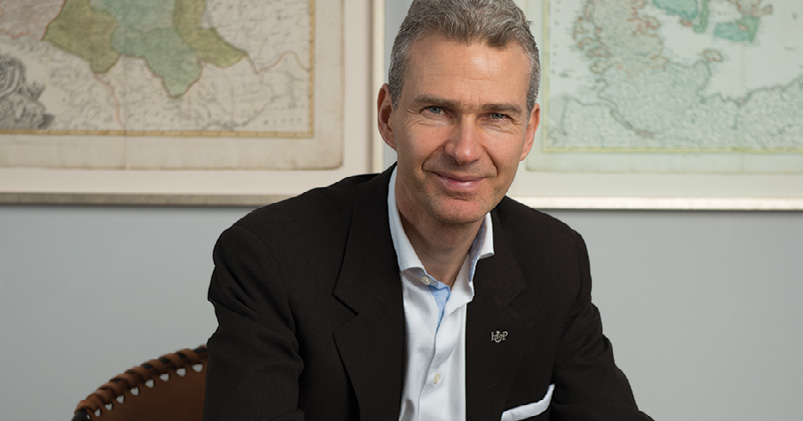Speech Given to the Economist Sustainability Summit, Athens, 16 October 2019
Speaking at the Economist’s Sustainability Summit in Athens, which brought together policymakers, heads of states, thought leaders, and industry experts to discuss the most pressing sustainability challenges facing the world today, Dr. Kälin posited that current strategies for handling the displacement crisis are both inadequate and disempowering, and proposed the concept of the ‘refugee city’ as a solution.
Full Text of Speech by Dr. Christian H. Kälin:
Refugee Cities: Migration as a Source of Sustainable Development
The history of humankind is a history of migration. It is largely a history of forced migration.
Anyone tracing their family tree needs to go back just a few generations to find ancestors leaving their homes to start again in a new place, often with nothing. This particularly defines the modern era. We currently face the largest displacement crisis on record: Almost 70 million people have been displaced by conflict and disaster.
But this is only the beginning. The earth’s climate is changing and many countries around the world are already suffering consequences. The recent storms in Mozambique and the Caribbean, the droughts in the Sahel, and the heatwaves in India are a foretaste of things to come. Even the most optimistic view on the future suggests that in the years ahead, more and more people will migrate in order to survive.
Where will these people go? And how will they maintain their independence and autonomy in the face of stricter policies that make the already difficult path to residence and citizenship in a new country even more challenging?
In most refugee camps, the plan for refugees is for them to wait until they can return home, even when there is no foreseeable end to the wars, occupations, or environmental disasters that have displaced them. May I ask, do you know how long on average a refugee stays in a camp? The average duration for a refugee in a camp now stands at 17 years.
As one refugee I met put it: “This is not living. This is merely existing, with no future or hope”.
Yet refugees should not be viewed as a burden. They have extraordinary wealth of talent and passion to contribute to society — provided they are given the opportunity. We should remember that many cities and entire countries were built by refugees in the past, when people had to leave their homelands to find a future elsewhere, and countries were eager to welcome them.
We need to make sure people are empowered, feel that they can contribute, and have an active choice that will define their future. Together, we can provide a platform, channeling the private sector’s creative power, resources, and entrepreneurial skills towards initiatives that create sustainable solutions for refugees and their host communities.
The broader humanitarian response is still almost entirely focused on maintaining refugees as ‘objects of care’ rather than empowering them. We need new forms of collaboration if we are to transform the global refugee crisis into a sustainable development opportunity.
To that end, I want to propose the concept of ‘Refugee Cities’.
The core idea is simple: to expand opportunities for displaced people by creating secure, self-governing communities in which people can settle and build a future. They can engage in work, start businesses, gain independence, and rebuild their lives. I believe this is the only long-term, sustainable solution to the world’s refugee crisis.
Refugee Cities go beyond the concept of charter cities or special economic zones. In a public–private partnership, these special jurisdictions can attract the necessary investment to replace camps with thriving communities that benefit their host countries. Think of Shenzhen, Hong Kong or Dubai. These cities, now great examples of growth and progress, were once nothing more than villages, until they were given special status and enabled by laws and investments that facilitated their remarkable development.
With the right international and national support, there is no reason that Refugee Cities that are granted extensive self-governance status would not thrive. They can become a replicable model for the future that equally benefit the people settling there as the countries enabling them.
Instead of costing billions in aid and providing no future solution and no hope, the time has come to create hope a better life for people based on the creation of a new society, increased trade and wealth.
In these complex and increasingly polarized times, it is important to remember that refugees are people like you and me, but finding themselves in exceptional circumstances which have more to do with a lottery than any active choice. Just ask yourself: did you choose the citizenship and passport you hold?
The way in which the refugee crisis has been addressed in recent years has disempowered and dehumanized displaced persons. The refugee crisis has also put a strain on host communities. We must change this narrative. We must work together with refugees to rebuild their lives, empowering them and their families to start afresh. We must work together with refugees to create wealth and economic progress, and to bring sustainability to the way this major global issue is handled.
Thank you.
Click here to download the full speech.
